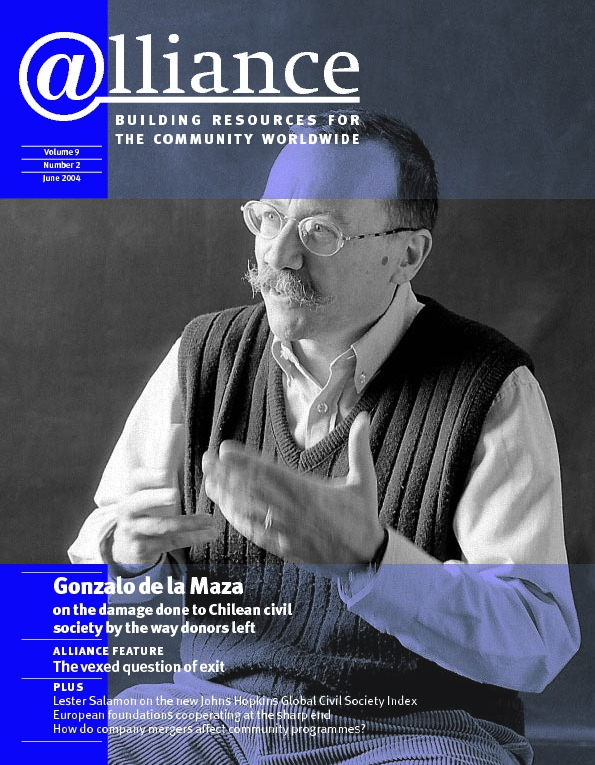Since Mike Edwards is one of the few writers who can bridge the divide between theoretical, empirical and practical concerns, he is always worth reading. His 1999 book Future Positive was a tour de force. His latest book – called simply Civil Society – is much less ambitious, but nevertheless essential reading for anyone interested in creating a better world through citizen action.
Civil society, says Edwards, is ‘a concept so unsure of itself that definitions are akin to nailing jelly to a wall’. He considers arguments to suggest that the term should be abandoned altogether, but concludes in the end that it is useful. Clarity about it can be achieved ‘so long as we are prepared to abandon false universals, magic bullets, and painless panaceas’.
Edwards suggests that there are three component features of civil society that are commonly conflated in the ‘lazy thinking’ that bedevils the field. The first component, deriving from de Tocqueville, is civil society as ‘association’ where citizens come together to organize. The second component, having its roots in the Greek polis, the Islamic Ummah and the Jewish Tikkum Olam, is civil society as a metaphor for ‘a good society’. Whereas the first meaning is descriptive, the second is normative. The third component, most articulately formulated by Habermas, is civil society as the ‘public sphere’ where the free play of ideas creates ‘dialogic politics’.
Edwards synthesizes these three components and, in doing so, makes considerable advances in our conceptual understanding of civil society that the field would do well to take heed of. He also poses what he says is the most important question in the civil society debate: ‘So how does a strong civil society make society strong and civil?’ This question, he says, is the most difficult to answer and therefore the least explored. Although some theorists posit a connection between strong associational life and a good society, there is little evidence to support their conclusions and the evidence that exists is an almighty mess. By implication, Edwards is criticizing much civil society research for looking at the wrong things. However, he is more explicit when he says that ‘in most cases, asking civil society scholars to distil policy and practice from their theories is akin to seeking help on plumbing from the local vicar’.
This is all good stuff and the book is a ‘fast’ read. My only quibble is that all its materials are drawn from academic sources and the book would have been richer had it taken account of the vigorous debates on these matters that have taken place in Alliance over the past few years.
Civil Society
Michael Edwards Polity Press £14.99/£22.95 (paperback) ISBN 0745631339
To order in the Americas or Canada, contact Blackwell Publishing.
Tel +1 800 216 2522
Fax +1 802 864 7626
Website http://www.polity.co.uk
To order in the rest of the world, contact Marston Book Services.
Tel +44 1235 465 550
Fax +44 1235 465 555
Website http://www.polity.co.uk
Barry Knight is Secretary of CENTRIS. He can be contacted at barryknight@centris.org





Comments (0)